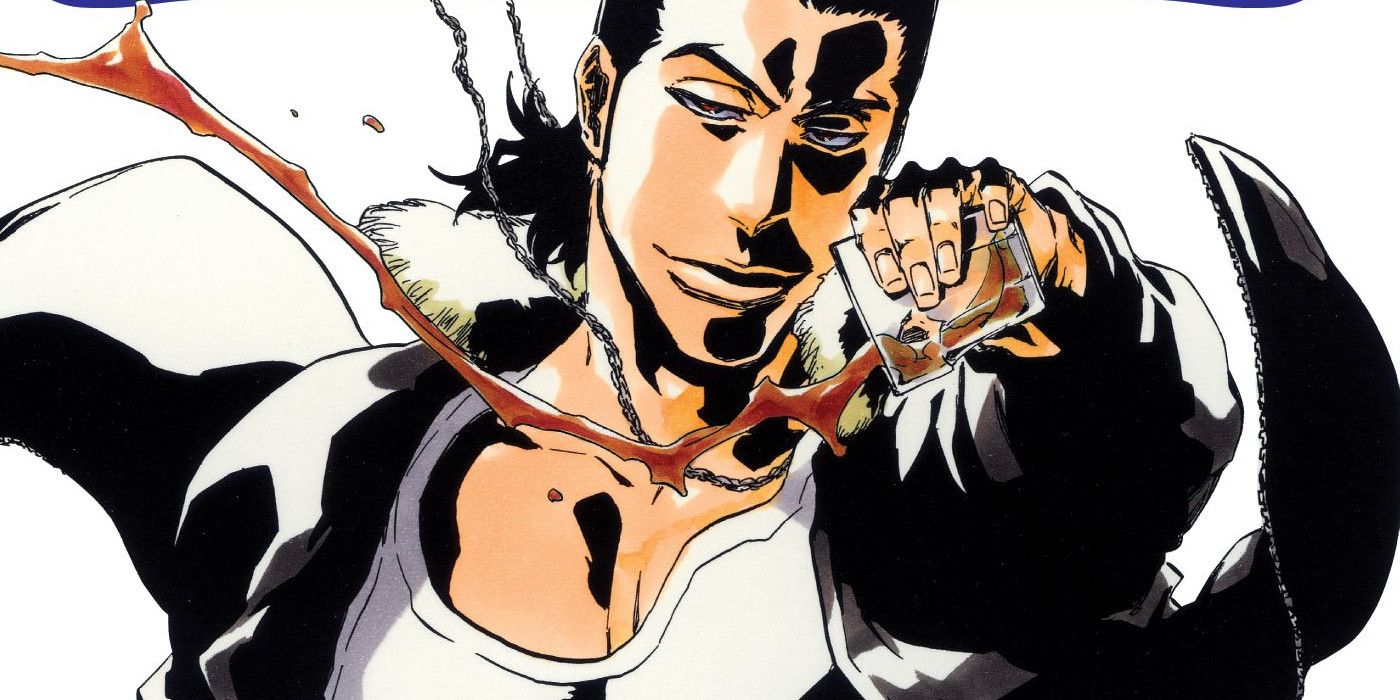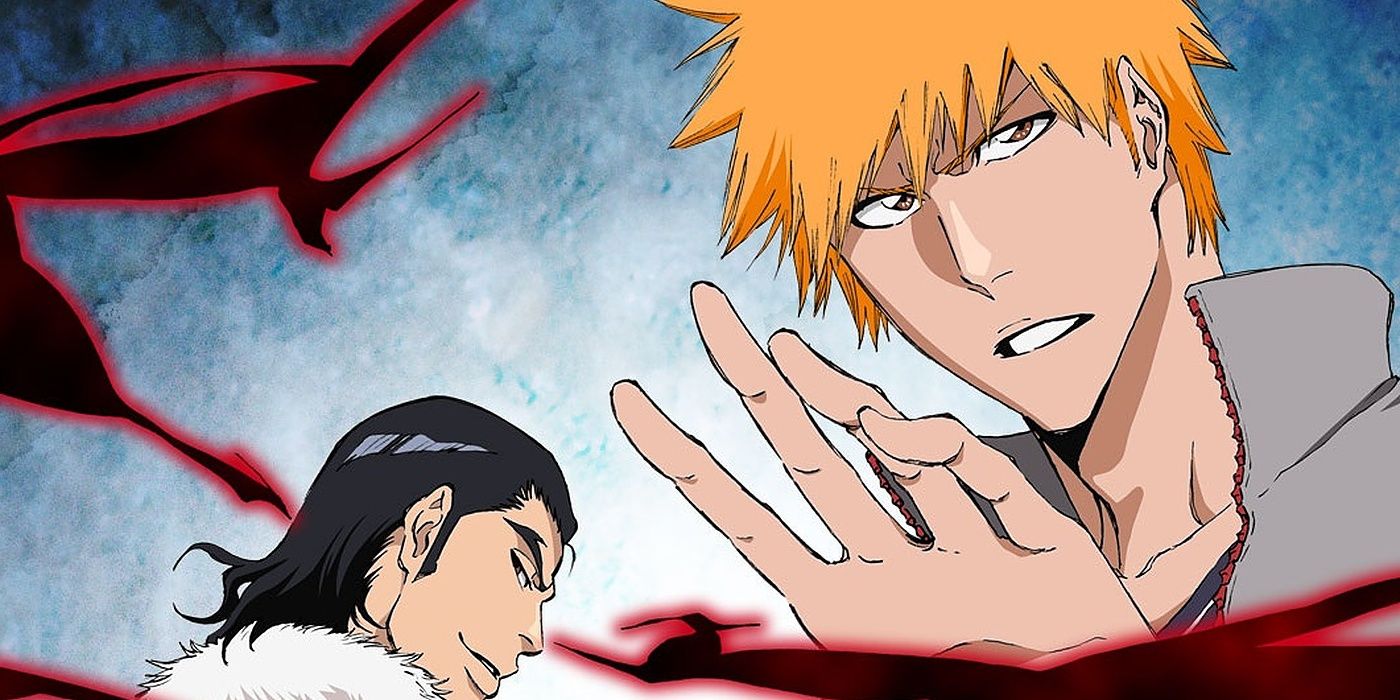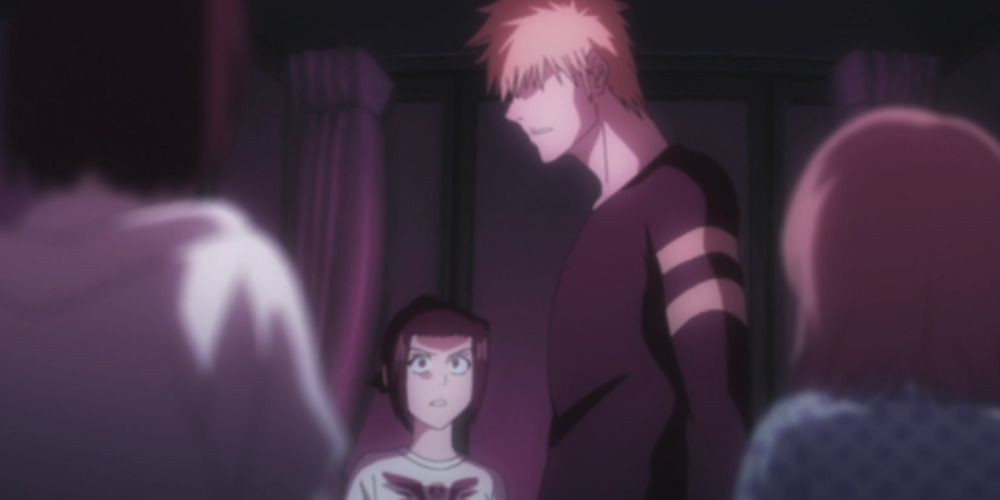When one thinks of betrayal in Bleach, the most obvious storyline is Aizen Sosuke’s elaborate plan of deceit in the "Soul Society" arc. The mastermind of deception pulled the wool over every Soul Reaper's eyes, performing one of the greatest acts of treachery in shonen history. Aizen's whole character was designed around the concept of treachery, even having his closest ally deceive him in the final stretch of his plan. However, Bleach has another betrayal storyline that deserves the same level of respect. The "Fullbringer "arc portrayed a similar and even more complicated plot that drastically evolved protagonist Ichigo Kurosaki.
The "Fullbringer" arc finds Ichigo at his weakest point in regard to power. His Soul Reaper powers have been dissolved due to his usage of the Dangai form, and he has become an observer to his friends protecting Karakura Town in his place. This inability to be of assistance when danger is afoot offers Kūgo Ginjō the opportunity to cast Ichigo down to his lowest point in Bleach, breaking his psyche through mental manipulation and seemingly taking everything that Ichigo holds dear. This absolute destruction of Ichigo’s mental state is directed by a series of betrayals, which is perfectly orchestrated with the usage of Shūkurō Tsukishima’s fullbring, Book of the End.
Ginjō’s Perfectly Planned Deception in Bleach
By the "Fullbringer" arc's conclusion, it is clear that Ginjō wanted to have Ichigo regain his powers in the form of a fullbring so he could extract it for himself. Due to this, he needed a plan that carefully placed Ichigo in certain battle scenarios and training regimes that helped him grow. However, Ichigo was not a fool; simply offering to bring back his power would have appeared suspicious. Ginjō needed to establish certain factors throughout the plan to ensure Ichigo was in a position of solitude and had no one but him to rely on. It was a tactic of divide and conquer, relationship building and emotional manipulation.
Initially, Ginjō needed Ichigo to focus on his own powerlessness. By putting Uryū Ishida in the hospital, it forced Ichigo to think about his own lack of ability to be useful. When Ginjō indoctrinated Yasutora Sado into the Fullbring Organization, it established a level of trust with his group -- even if Ichigo was still skeptical. By having Tsukishima attack Orihime Inoue where their spiritual power could be sensed, it firmly instilled the need for Ichigo to regain some sort of strength as the original protector of Karakura Town and those close to him.
By systematically engaging each of Ichigo’s closest friends, then finally turning all those he holds dear to their side, it severed Ichigo’s support structure and left him hopeless. Though this sounds like a well-thought-out plan, there was a certain extra factor that made the entire process more realistic. Tsukishima’s fullbring, Book of the End, was a vital instrument to the plan's completion.
Tsukishima's Book of the End Completed Ginjō’s Master Plan
Tsukishima’s Book of the End allows him to insert himself into the memories of anyone he cuts. While this was instrumental to turning Ichigo’s friends to his side and ensuring the protagonist's feeling of solitude, it would have been for naught should Ichigo fall completely into despair. He needed one last bond he could rely on to finally reach the end point Ginjō required. Ginjō could have played the role of comrade to Ichigo, but his introduction in Bleach made it clear he has an untrustworthy demeanor; simply pretending to be on Ichigo’s side was not enough. Unlike Aizen who had a thousand years to perfect a double personality, Ginjō needed authenticity to deceive Ichigo.
To achieve this, Ginjō had Tsukishima use Book of the End on him to alter his own memories to consider Tsukishima an enemy. As far as Ginjō was concerned for a big portion of the arc, he truly was on Ichigo’s side and was his only remaining ally. Due to this, he did not need to concern himself with acting or making a mistake. The switch in personality is actually quite apparent from Ginjō’s first meeting; he interrogates Ichigo and cuts down Uryū, from which the pair begin to bond. The plan was in motion -- all he needed to do was place trust in his closest friend, Tsukishima, and the final betrayal would push Ichigo to complete despair, making him easy pickings for the curtain of the plan.
This betrayal landed so perfectly thanks to the variety of factors that led to its conclusion. Tite Kubo purposely made Ginjō appear suspicious in his first introduction to lay the seed of doubt in the audience’s mind, only to subvert the story into the audience believing he was Ichigo’s only hope. It is again subverted, mainly due to using the terrible Book of the End power, to turn the relationship on its head and have Ichigo in a place of abandonment. The arc placed Ichigo at his lowest point in Bleach while the audience was taken on a roller-coaster of whom to trust, making the reveal all the more spectacular.



